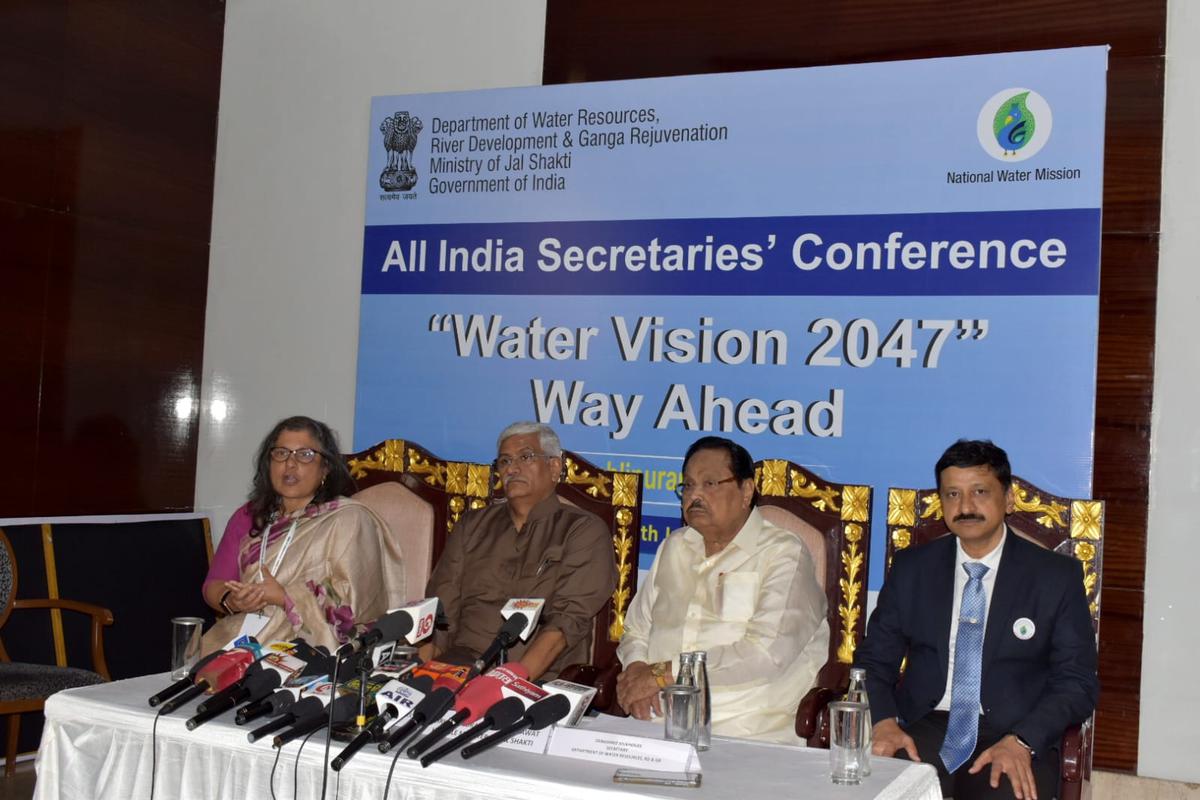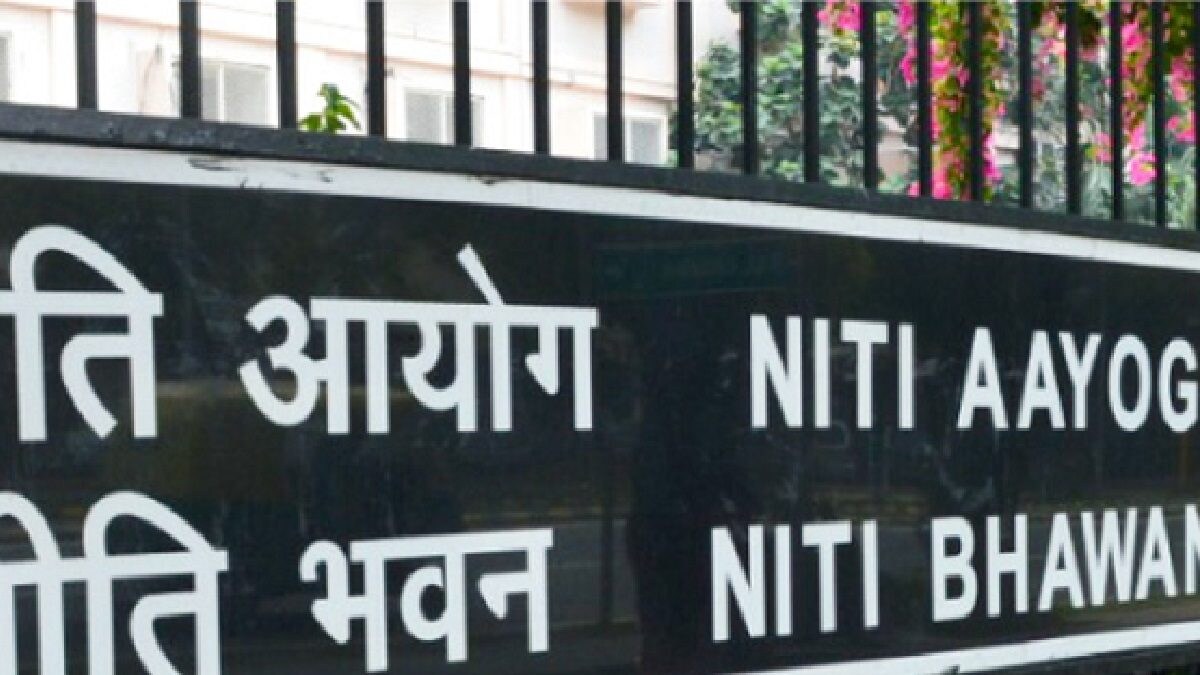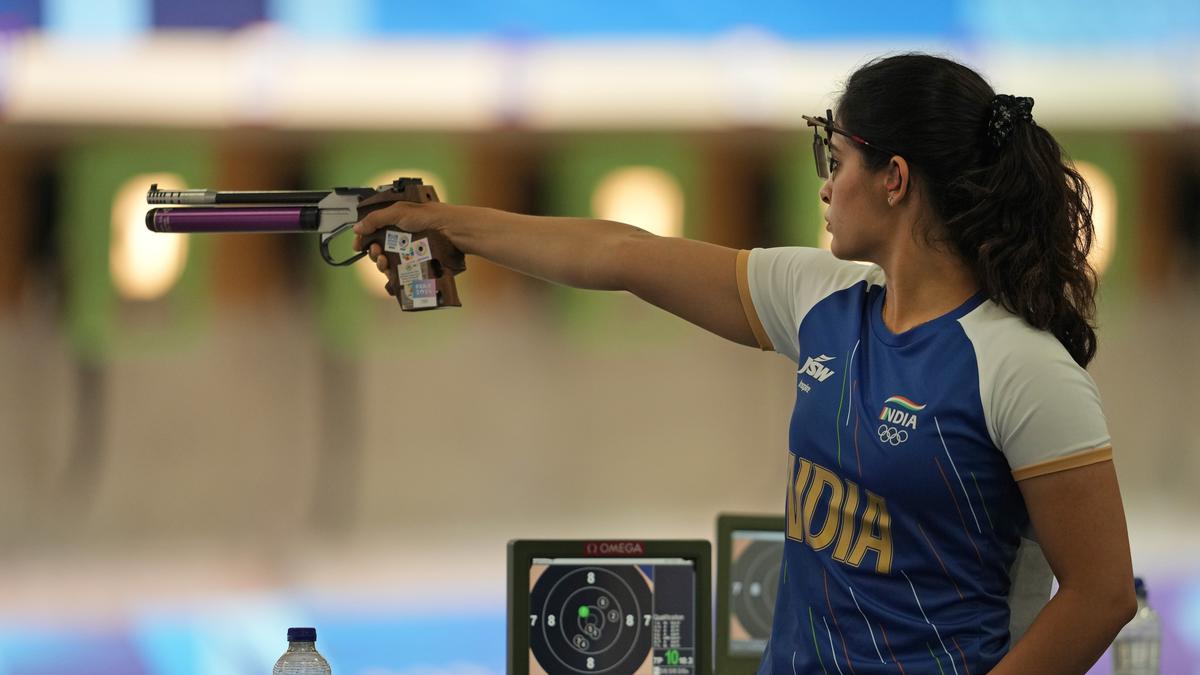Union Minister of Jal Shakti Gajendra Singh Shekhawat speaking at the All India Secretaries Conference on Water Vision @2047-Way Ahead, in Chennai on January 23, 2024.
| Photo Credit: Special Arrangement
The Cauvery Water Regulation Committee (CWRC) is an unbiased platform working towards best management of water resources, said Union Minister of Jal Shakti Gajendra Singh Shekhawat on Tuesday.
He was speaking at a press conference after the All India Secretaries Conference on Water Vision @2047-Way Ahead, which was organised by the National Water Mission of the Ministry of Jal Shakti, and coordinated by the Tamil Nadu Water Resources Department here.
On the Cauvery water share for Tamil Nadu, the Minister said the CWRC had met several times to assess water availability, and based on the storage, it decided the allocation for the States.
Explained | The Cauvery water conundrum
Groundwater recharge
On the groundwater situation across the country, he said the Jal Shakti Ministry had improved the efficacy of aquifer mapping, which led to evidence-based management interventions, and helped drastically reduce the number of overexploited and critical groundwater areas in the country. He said groundwater assessment units showed a nearly 10% improvement owing to better recharge.
The frequency of aquifer mapping had been stepped up and annual reports were now being published with better efficacy and more number of piezometers, he said. Groundwater mapping had been completed for nearly 25 lakh sq. km. in the country and efforts such as the Atal Bhujal Yojana for community participation and demand-side interventions had helped improve stressed aquifers and assess areas that needed recharge, he said.
He also noted that the Ministry had prepared a draft recycle and reuse policy and shared with the State governments. Some States had their own policy, he said.

Union Minister of Jal Shakti Gajendra Singh Shekhawat and other dignitaries at the All India Secretaries Conference on Water Vision @2047-Way Ahead in Chennai on January 23, 2024.
| Photo Credit:
Special Arrangement
Earlier at the conference, Mr. Shekhawat said all States should prioritise demand-side management by regulating the use of water, instead of supply management. Each State must develop a road map to sustain drinking water sources.
Editorial | Expertise over politics: On the Cauvery water dispute
In a bid to strengthen the Centre and State governments’s resolve for better water management, a conference of State Ministers was organised last year wherein 22 recommendations were made. This year, the Ministry organised two-day All-India Secretaries’ Conference to assess the progress of the State governments towards implementing those recommendations covering aspects such as water governance and storage, climate resilience and river health, and also learn and share good practices adopted in various States.
A book Jal Shakti Abhiyan: Catch the rain – A journey was released on the occasion. Debashree Mukherjee, Secretary, Ministry of Jal Shakti also spoke.






